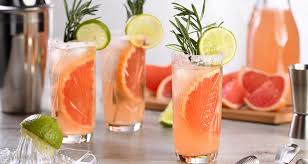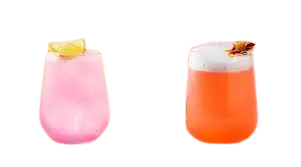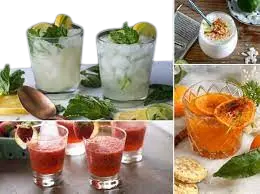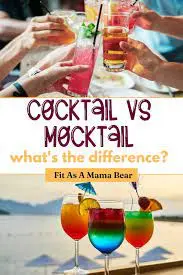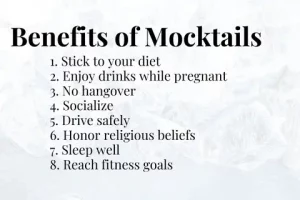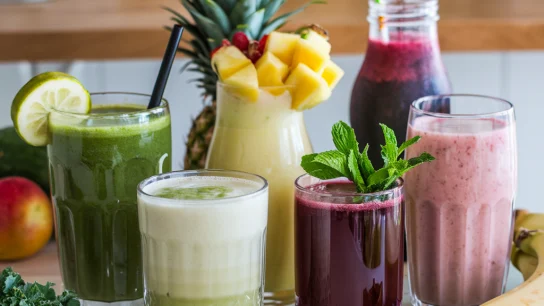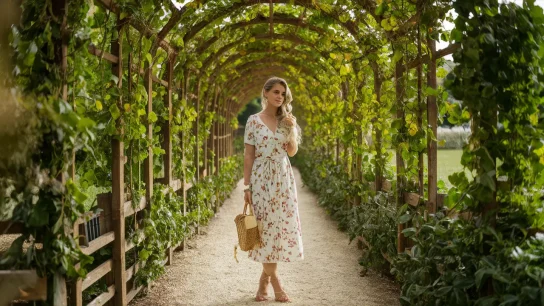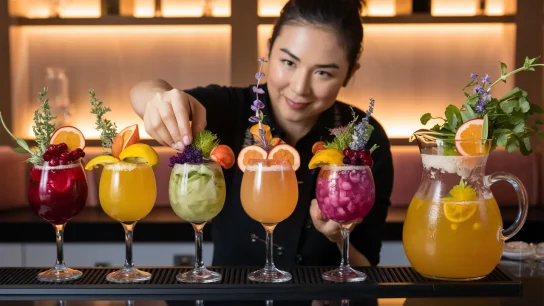When it comes to non-alcoholic beverages, the terms “virgin cocktail” and “mocktail” are often used interchangeably, leading to confusion for many people.
However, there is actually a slight difference between the two. Understanding the distinction can be helpful, especially when you are hosting an event or looking for alternatives to alcoholic drinks.
Defining virgin cocktail and mocktail
To truly understand the difference between a virgin cocktail and a mocktail, it’s important to define each term. Let’s start with virgin cocktails. A virgin cocktail is a non-alcoholic version of a traditional cocktail created by omitting.
The other ingredients and flavors of the original cocktail. This means that a virgin cocktail will taste similar to its alcoholic counterpart
but will not contain the alcohol content.
Mocktail is a non-alcoholic beverage that is specifically designed to resemble a cocktail in appearance and taste, but without any association to a specific alcoholic drink.
Ingredients used in virgin cocktails and mocktails
Ingredients used in virgin cocktails and mocktails can vary depending on the specific recipe and desired flavors. However, there are some common ingredients that are often found in both.
For virgin cocktails, the focus is on eliminating the alcohol while maintaining the essence of the original cocktail. This means that the non-alcoholic version will typically include fruit juices, syrups, sodas, and other mixers to create a similar flavor profile.
Mocktails have more flexibility in terms of ingredients, as they are not trying to mimic a specific cocktail. Mocktails often feature a combination of different fruit juices, sparkling water, soda, herbal infusions, and unique flavor combinations.
Preparation methods
Now that we have discussed the differences in ingredients between virgin cocktails and mocktails, let’s explore the various preparation methods used for these popular alcohol-free beverages. The art of crafting a perfect virgin cocktail or mocktail.
When making a virgin cocktail, it’s important to focus on capturing the essence of the original cocktail without the added alcohol. This can be achieved by muddling or shaking the ingredients together to create a well-blended mixture.
The use of a blender may be necessary to achieve a smooth consistency. Garnishes like fresh fruits or herbs can be added to enhance the visual appeal and create an inviting aroma.
Mocktails, on the other hand, provide more room for experimentation and creativity. The preparation methods can range from simply pouring and stirring the ingredients together to more complex techniques like layering or infusing flavors.
Taste and presentation Differences
Virgin cocktails, as a replication of their alcoholic counterparts, aim to capture the essence and taste of the original cocktail without the inclusion of alcohol. The flavors are carefully crafted to ensure a well-balanced and enjoyable experience.
From fruity and refreshing to bold and complex, the taste of a virgin cocktail should mirror its alcoholic counterpart, ensuring that non-drinkers can still enjoy the same flavors.
Mocktails offer a wider range of taste possibilities as there are no restrictions or expectations to mimic a specific cocktail. These beverages can be crafted to bring together innovative and unique flavor combinations, enticing the taste buds with unexpected surprises.
From tangy and exotic to sweet and creamy, mocktails provide endless opportunities to experiment and create truly remarkable taste experiences.
Both virgin cocktails and mocktails strive to be visually appealing. However, virgin cocktails often aim to mimic the appearance of their alcoholic counterpart, utilizing similar garnishes, glassware, and presentation techniques.
Origins of mocktails and their popularity
The origins of mocktails can be traced back to the temperance movement in the early 20th century when the consumption of alcohol was prohibited in some parts of the world. Mocktails were initially created as a substitute for alcoholic cocktails.
Over the years, mocktails have gained immense popularity, not just among non-alcoholic drinkers, but also among those who appreciate the art of mixology and enjoy experimenting with flavors. Many restaurants, bars, and even specialty mocktail bars.
Mocktails have also gained traction during events and gatherings where people prefer to opt for alcohol-free alternatives. They provide a great alternative for designated drivers, pregnant women, and anyone who chooses not to consume alcohol for various reasons.
How mocktails differ from alcoholic beverages?
When it comes to the difference between mocktails and alcoholic beverages, the key distinction lies in the absence of alcohol. Mocktails are specifically crafted to mimic the flavors and presentation of cocktails but without any alcoholic content.
Mocktails often include a combination of fruit juices, sodas, syrups, and other non-alcoholic mixers to create a balance of flavors. These ingredients can be customized based on personal preferences and the desired taste profile.
| Aspect | Cocktails | Mocktails |
|---|---|---|
| Alcohol Content | Contains alcohol, typically ranging from low to high, depending on the recipe and ingredients used. | Virtually non-alcoholic, containing negligible amounts of alcohol, typically less than 0.5% ABV. |
| Ingredients | Includes spirits (vodka, rum, gin, tequila, whiskey) along with other mixers, juices, syrups, and garnishes. | Excludes alcohol, using fruit juices, syrups, sodas, herbs, and garnishes to mimic the flavors of cocktails. |
| Intoxication Potential | Can lead to intoxication due to the presence of alcohol, with effects varying depending on the strength of the cocktail and the amount consumed. | Does not lead to intoxication, as the negligible alcohol content is insufficient to cause any noticeable effects. |
| Popular Examples | Martini, Margarita, Mojito, Manhattan, Daiquiri, Long Island Iced Tea | Virgin Mojito, Shirley Temple, Virgin Piña Colada, Virgin Mary, Virgin Sangria |
The popularity of mocktails has inspired mixologists to create innovative and sophisticated recipes using fresh ingredients and inventive techniques, resulting in a wide range of enticing options for those looking for a non-alcoholic beverage.
Benefits of choosing virgin cocktails or mocktails
One of the main benefits of choosing virgin cocktails or mocktails is the ability to enjoy a flavorful and refreshing drink without the need for alcohol. This is especially advantageous for individuals who may be avoiding alcohol for personal, health, or religious reasons.
Furthermore, opting for mocktails can also be a smart choice for those who want to stay hydrated and energized throughout the night. Unlike alcoholic cocktails that can dehydrate the body.
Moreover, choosing mocktails can reduce the risk of overconsumption and helps maintain a clear mind. By removing alcohol from the equation, you can indulge in multiple flavors and combinations without worrying about the negative effects of intoxication.
You’re abstaining from alcohol or simply looking for a delicious and healthier drink option, mocktails and virgin cocktails offer a fantastic selection of flavors, creativity, and enjoyment.
Conclusion
The choice to enjoy a virgin cocktail or mocktail provides numerous benefits. From offering a flavorful and refreshing drink without alcohol, to keeping you hydrated and energized, these non-alcoholic options are a smart choice for various reasons.
By opting for mocktails, you can indulge in delicious drink combinations without the risk of overconsumption or the negative effects of intoxication. Mocktails provide a great opportunity to experiment with different flavors and combinations, allowing for a more enjoyable and responsible drinking experience.

